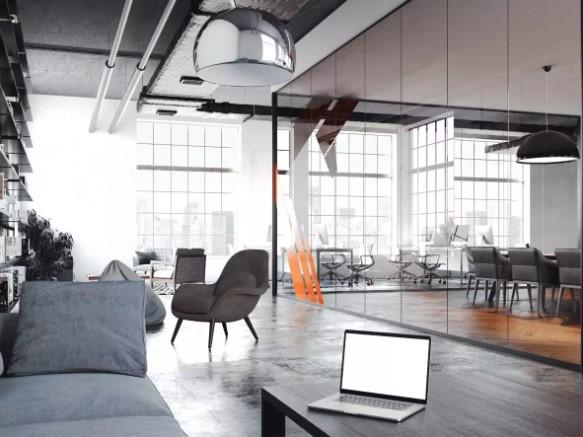Flexible Office Predictions 2023, India

The COVID-19 pandemic has had a significant impact on the way we work, leading to a shift towards remote and flexible working arrangements and introducing the new norms, ‘Work From Office’, ‘Return to Office’, ‘Hybrid Working’, and ‘Flexible working’. In the last year, the workspace industry has undergone a significant transformation as the anticipated "return to the office" became a more acceptable approach with a mix of remote and in-person work.
Despite this, the importance of flexibility remains a crucial factor in workspace strategies. Companies arenow expecting more from their office spaces, providing new opportunities for landlords and occupiers to adapt their flexible solutions to meet the needs of their clients.
PREDICTION 1
Expansion and growth of Operators - Operators would be on an expansion spree in all 3 segments:
a. Premium Enterprise coworking and Managed offices' roll-out would be concentrated in metros and Top office micro Markets within the metros.
b. Home Grown operators’ local and National would be in full throttle and confidence to build speculative assets and products backed by strong demand data and trends around the affordable segment. This is going to be a Massive India Story where existing operators as well as new entrants will focus on Metro and Non-Metros - Top micro market but A- B+ Asset with compliance in place. The target price for the occupier here is 7k-9k per desk. This segment is seeing massive demand and occupancy levels.
c. Depth in product and Large campus Strategy - Some operators in the last 2 years have demonstrated great success in this strategy. Instead of multiple centers and locations, they're changing the narrative to concentration and economies of scale. Companies like Smartworks and Indiqube have adopted this strategy, where they lease out a single large standalone campus to multiple flexible occupants, primarily providing privately managed offices at competitive price points, design specifications, and usage terms. For instance, within the same campus, there are average seat prices of INR 7K and INR 15K, depending on the occupiers' specifications and deal terms.
PREDICTION 2
Occupier's Preference and Demands: As a result of the after-effects of the COVID-19 pandemic and economic recession, occupiers are likely to demand more flexibility and shorter lease terms. They will be more cautious in the allocation of their capital as well as operational expenses. This trend is expected to continue in the future, and the enterprise corporate office might look like shorter leases, fitted-out spaces, or privately managed spaces with an average lock-in period of 36 months or less.
The critical metric for success will be the demand for coworking spaces and hybrid usage across India, offering fixed inventory but unfixed and unlimited access within the company, and providing flexibility for employees to work on a day-to-day basis, like an "Uber for office space" - the hyper flex of flex.
PREDICTION 3
Flex Pricing
The cost per desk in the flexible workspace segment is expected to rise by 5-7% to improve the return on investment and profitability for operators and providers. In the last 2 years, there has been pressure on pricing due to competition and high vacancy rates. However, with an increase in occupancy levels and demand, operators in key micro markets are looking to increase their prices. Occupiers will likely be open to this, as long as it is justified by the design specifications and services provided.
PREDICTION 4
Recession & Flex
India has a history of showing resilience and strong immunity to global challenges such as the financial crisis of 2008. It is expected to do the same in the face of a potential global recession. However, if large economies are affected, it may also impact the funding and investment climate in India, although to a lesser extent and in a more sporadic or specific manner, rather than an overall recession.
In the past, economic downturns and recessions have had a positive impact on the flexible office industry, as companies tend to reduce their office footprint and seek more flexibility in terms of pricing, lease terms, and usage patterns. After the COVID-19 pandemic, there has been a significant increase in demand for flexible office spaces, which is likely to drive further adoption across various sectors.
By- Mr. Paras Arora, Founder & CEO- Qdesq




